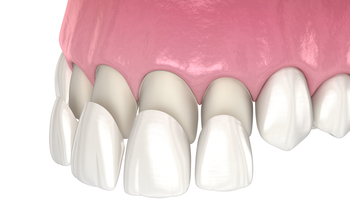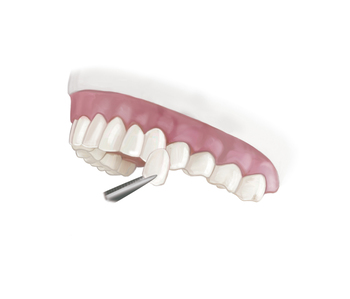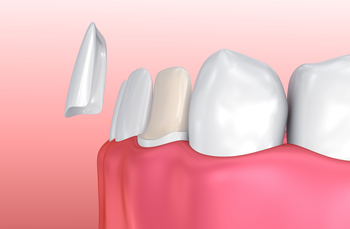In the realm of cosmetic dentistry, composite veneers stand out as a preferred choice for those looking to enhance the appearance of their smile. Unlike their porcelain counterparts, composite veneers offer a minimally invasive, cost-effective solution for addressing a variety of dental imperfections.
But one question often arises among patients considering this option: How long do composite veneers last?
This comprehensive guide delves into the lifespan of composite veneers, comparing them with porcelain veneers and exploring factors that influence their durability. By the end, you will understand what to expect from composite veneers and how they can be a valuable investment in your smile.
Understanding Composite Veneers
Composite veneers are made from a high-quality composite resin material applied directly to the natural teeth. This method allows for a transformation that can rectify issues such as discolouration, minor misalignments, and chips, bringing about an immediate improvement in the appearance of one’s smile. The process involves minimal preparation of the natural tooth enamel, making it a less invasive option than porcelain veneers.
Composite Veneers Procedure: Direct, Indirect, and Temporary Veneers Explained

The composite veneer procedure is a transformative process in cosmetic dentistry designed to enhance the aesthetic appeal of one’s smile.
This procedure can be categorised into two main types: direct composite veneers and indirect composite veneers, with temporary veneers available during the treatment phase. Understanding the procedural nuances of each type can help patients make informed decisions about their cosmetic dental treatments.
Direct Composite Veneers
Direct composite veneers involve the application of composite resin material directly onto the natural teeth. This procedure is typically completed in a single dental visit, offering a quick and efficient solution for improving the appearance of the teeth.
The dentist begins by selecting a composite resin colour that closely matches the patient’s natural teeth, ensuring a seamless and natural-looking result.
The process involves minimal preparation of the tooth’s surface, where the dentist etches the enamel to create a roughened surface for better adhesion. The composite resin is meticulously applied, sculpted, and shaped to correct imperfections, such as chips, gaps, or discolouration.
The resin is then hardened with a curing light and polished to achieve a smooth and lustrous finish. Direct composite veneers are praised for their immediacy and ability to enhance one’s smile in just one appointment significantly.
Indirect Composite Veneers
Indirect composite veneers, on the other hand, are fabricated in a dental laboratory before being bonded to the patient’s teeth.
This process requires at least two dental visits: one for taking impressions of the teeth and another for fitting the custom-made veneers. Indirect veneers are made from a composite resin material that is cured and sculpted outside the mouth, allowing for intricate detail and customisation.
The initial visit involves preparing the teeth, which may include slight reshaping to accommodate the veneers. Impressions of the teeth are then taken and sent to a dental laboratory where the veneers are crafted.
During this period, temporary veneers may be placed to protect the prepared teeth and maintain aesthetics. Once the indirect composite veneers are ready, the temporary veneers are removed, and the permanent ones are bonded to the teeth, resulting in a beautifully enhanced smile.
Temporary Veneers
Temporary veneers play a crucial role in the veneers procedure, especially in indirect composite veneers. These temporary coverings are used to protect the prepared teeth while the permanent veneers are being fabricated.
Made from tooth-coloured acrylic material, temporary veneers offer patients the benefit of a presentable smile during the interim period. They also preview the outcome, although the permanent veneers will be of superior quality and fit.
Temporary veneers require careful handling, as they are less durable than the final composite or porcelain veneers. Patients are advised to avoid hard or sticky foods and to be gentle when cleaning around these temporary areas to prevent them from dislodging or becoming damaged.
The Lifespan of Composite Veneers
Generally speaking, composite veneers last between 5 and 7 years, depending on various factors such as the individual’s oral hygiene practices, dietary habits, and the initial application’s quality.
This contrasts with porcelain veneers, which can last 10 to 15 years or more due to the material’s durability. However, it’s essential to note that the longevity of composite veneers can be significantly extended with proper care and regular dental check-ups.
Factors Affecting the Durability of Composite Veneers
The longevity of composite veneers is a critical concern for individuals seeking to enhance their smile through cosmetic dentistry.
While composite veneers are celebrated for their ability to offer a transformative smile makeover, understanding the variables that affect their durability can help ensure they remain in top condition for as long as possible. Let’s delve deeper into the factors that influence the lifespan of composite veneers, incorporating essential keywords to provide a comprehensive outlook.

Oral Hygiene: The Foundation of Veneer Longevity
The importance of oral hygiene cannot be overstated when it comes to extending the life of dental veneers, including composite resin veneers. Regular brushing with a non-abrasive toothpaste, gentle flossing to remove plaque between teeth, and routine dental check-ups play pivotal roles.
These practices help preserve the integrity of the veneers and the health of the underlying natural teeth and gum tissue. Effective oral hygiene prevents the buildup of plaque and tartar that can lead to gum disease, which may compromise the foundation on which veneers rest.
Dietary Choices: Navigating the Impact on Veneers
Consumption of highly acidic foods and beverages and those with strong colourants can harm the aesthetic appeal of composite resin veneers. Foods and drinks like coffee, red wine, berries, and citrus fruits can stain the resin material over time, diminishing the bright, natural appearance of the veneers. To maintain the pristine condition of both porcelain or composite veneers, it is advisable to moderate the intake of stain-inducing substances and rinse the mouth with water after consumption.
Lifestyle Habits: Avoiding Potential Risks
Certain lifestyle habits can lead to premature wear and tear on composite veneers. Habits such as nail-biting, chewing on hard objects like pens, ice, or hard candy, and using teeth to open packages can exert excessive force on veneers, risking chips or cracks.
It’s crucial for individuals with dental veneers, including porcelain laminate veneers and composite resin veneers, to be mindful of these actions and seek alternatives to protect their investment in their smile.
Quality of Application: The Role of Professional Expertise
The skill of the dentist and the quality of the composite resin material are paramount in determining the initial success and longevity of the veneers. A meticulous application process involving proper tooth preparation, precise veneer fit, and expert bonding techniques is essential.
The choice of high-quality composite resin ensures that the veneers offer the desired aesthetic appeal while being resilient to daily wear and tear. When considering porcelain or composite veneers, selecting a reputable dental professional with a proven track record in cosmetic dentistry can significantly impact the outcome and durability of the treatment.
The durability of composite veneers is influenced by a multifaceted array of factors, from individual habits and dietary choices to the expertise behind their application. By acknowledging and addressing these variables, individuals can enjoy the full benefits of their composite veneers for years to come. Maintaining diligent oral hygiene, making informed dietary choices, avoiding harmful habits, and ensuring the quality of application are all steps in the right direction toward preserving the beauty and integrity of composite resin veneers.
Composite vs. Porcelain Veneers: A Comparison
While both composite and porcelain veneers serve the same cosmetic purpose, they differ in several key aspects:
Material
Porcelain veneers are made from a durable ceramic material that mimics the translucency of natural teeth, while composite veneers consist of a composite resin material.
Durability
Porcelain veneers are generally more resistant to staining and wear, contributing to their longer lifespan.
Cost
Composite veneers are less expensive initially than porcelain veneers, making them an attractive option for many patients.
Procedure
The application of composite veneers is less invasive. It can often be completed in a single visit, unlike porcelain veneers, which typically require at least two visits to a dental laboratory.
Maximising the Lifespan of Composite Veneers

To ensure your composite veneers last as long as possible, consider the following tips:
Maintain Excellent Oral Hygiene: Brushing twice daily, flossing daily, and using an antiseptic mouthwash can help preserve the veneers and oral health.
Regular Dental Check-Ups: Routine visits to your dentist allow for the early detection and management of any issues that could affect the veneers’ longevity.
Avoid Harmful Habits: Steering clear of habits that can damage your veneers, such as biting on pencils or grinding your teeth, is essential.
Wear Protective Gear: If you engage in contact sports, wearing a mouthguard can protect your veneers from potential damage.
When to Replace Composite Veneers
Despite the best care, composite veneers will eventually need to be replaced. Signs that it might be time for a replacement include noticeable wear and tear, chipping, or staining that cannot be removed through professional cleaning. Additionally, changes in your natural teeth or gums may necessitate the replacement of veneers to maintain a harmonious smile.
Conclusion
Composite veneers offer a versatile and accessible solution for those looking to improve their smile’s aesthetic. At the same time, they may not last as long as porcelain veneers, but composite veneers can provide a beautiful and natural-looking smile for many years with appropriate care and maintenance. It’s important to consult a qualified dental professional to discuss your needs and expectations to ensure that composite veneers are the right choice.
If you’re considering composite veneers or any other cosmetic dentistry procedure, Infinity Dental Care is here to help. Our team of experienced professionals is dedicated to providing high-quality, personalised care to achieve the smile you’ve always desired. Contact us today at (02) 9159 6237 to schedule your consultation and take the first step towards a brighter, more confident smile.
References:
https://www.forbes.com/health/dental/composite-veneers/
https://www.mayoclinic.org/healthy-lifestyle/adult-health/in-depth/dental/art-20047475

